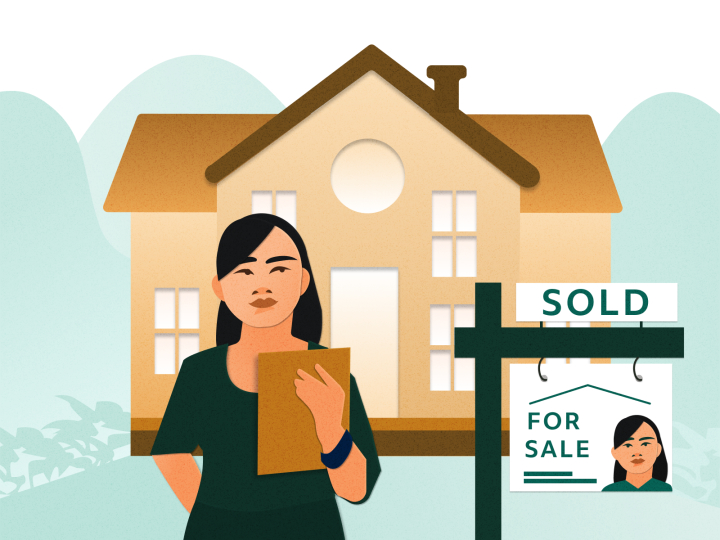The Future of Realty: Fads and Opportunities to View
As the property landscape evolves, it ends up being increasingly vital to comprehend the arising fads and possibilities that will define the market in the coming years. Technical innovations are reshaping transactional procedures, while an expanding concentrate on sustainability mirrors changing customer top priorities. In addition, demographic shifts and the surge of remote work are influencing housing preferences, particularly in suburbs. With these characteristics at play, a better evaluation of the adaptations and approaches required for success exposes appealing opportunities that might improve financial investment strategies and market habits.
Technical Technologies in Property
In current years, the actual estate market has accepted a wave of technical technologies that are changing traditional methods. One of the most significant innovations is the rise of large information analytics, which permits actual estate professionals to analyze market patterns, anticipate property worths, and recognize investment chances with unmatched precision.
Additionally, digital fact (VR) and augmented fact (AR) technologies are changing property marketing by supplying immersive experiences for prospective purchasers and renters. These devices allow clients to conduct virtual trips of residential properties, consequently enhancing the search process and enhancing consumer involvement. Blockchain technology is obtaining grip as a means to protect deals and keep clear documents, thus reducing fraud and expediting the closing procedure.
Smart home technologies are also becoming progressively prevalent, allowing property owners to check and manage their buildings remotely (Real Estate Lockhart). Jointly, these technological technologies are reshaping the landscape of genuine estate, promoting a much more efficient, transparent, and customer-centric sector
Demand for Sustainable Qualities
As customers significantly prioritize environmental obligation, the need for lasting residential or commercial properties has risen in the property market. This shift reflects a broader societal trend toward sustainability, with buyers and capitalists looking for residential or commercial properties that reduce ecological impact while maximizing energy efficiency. Attributes such as solar panels, energy-efficient home appliances, and sustainable building materials are now considered as crucial instead of optional.

Furthermore, the rise of green communities, which prioritize walkability and access to mass transit, even more stresses this fad. These growths appeal to ecologically mindful buyers and promote a healthier lifestyle.
As the demand for sustainable residential or commercial properties remains to rise, industry stakeholders have to adapt to these expectations. By prioritizing and accepting innovative methods sustainability, the realty market can not just satisfy consumer need yet additionally add to a much more sustainable future.
Transforming Customer Demographics

Additionally, the maturing population is improving demand for real estate. Baby boomers are looking for scaled down houses that supply access and low maintenance, typically preferring metropolitan setups with close-by features. This shift demands a focus on multi-generational real estate solutions that fit differing requirements.
Additionally, cultural variety is playing a critical function in genuine estate fads. As these group changes continue to progress, genuine estate experts have to adjust their techniques to resolve the needs of these diverse purchasers (Real Estate Lockhart).
Increase of Remote Work Effect
Significantly, the rise of remote job is changing the property landscape, motivating substantial changes in purchaser preferences and area selections. As staff members appreciate the adaptability of functioning from home, numerous are reviewing their household demands, causing a surge in demand for residential properties in rural and country areas. This fad is largely driven by the wish for more sizable living settings that can accommodate home offices and a far better high quality of life.
Furthermore, urban facilities, once the centerpiece for purchasers, are witnessing a steady decline popular as individuals focus on affordability and accessibility to nature. As a result, real estate programmers and capitalists are changing their focus towards homes that provide home office areas, outdoor services, and proximity to important services.
Real estate specialists should adapt to the changing preferences of buyers, stressing the value of way of living variables in their advertising and marketing strategies. The effects of remote job on genuine estate are profound, shaping future trends and possibilities.
Financial Investment Opportunities in Emerging Markets
Investment chances in emerging markets are consistently attracting focus from investor looking for diversity and growth potential. These markets, characterized by fast economic growth, raising urbanization, and a growing middle course, present distinct potential customers for wise financiers. Countries in Southeast Asia, Africa, and Latin America are seeing significant framework enhancements and favorable federal government policies, which further improve their charm.
Property sectors such as household, commercial, and logistics are experiencing enhanced demand as a result of metropolitan movement and progressing customer preferences. Especially, cities like Ho Chi Minh City, Nairobi, and Medellín are coming to be Look At This hotspots for investment as a result of their broadening economies and vibrant demographics.
Investors must perform comprehensive market evaluations to identify crucial patterns, such as shifts in population characteristics and financial stability, which can affect property values. In addition, partnerships with local property firms can promote successful entrance and navigation in these markets.
Nonetheless, it's essential to be conscious Read Full Article of possible risks, including political instability and regulative obstacles. By considering these factors and embracing a lasting viewpoint, investors can efficiently profit from the lucrative opportunities emerging in these establishing regions.

Verdict
To conclude, the future of genuine estate will be substantially influenced by technological improvements, a growing emphasis on sustainability, and progressing purchaser demographics. The increase of remote job is reshaping housing preferences, especially in suburbs. Arising markets present substantial financial investment chances for stakeholders willing to adjust to these changes. Browsing this changing landscape will need calculated partnerships and an eager understanding of market characteristics to utilize on the trends shaping the industry.
As the real estate landscape advances, it comes to be progressively vital to recognize the emerging fads and possibilities that will specify the market in the coming years. One of the most significant developments is the surge of big information analytics, which allows genuine estate professionals to examine market fads, predict home worths, and identify investment possibilities with unprecedented precision.As customers increasingly focus on ecological responsibility, the demand for sustainable properties has actually risen in the real estate market. The ramifications of remote job on real estate are profound, forming future fads and possibilities.
Investment chances in arising markets are consistently attracting interest from actual estate financiers seeking diversification and growth capacity.